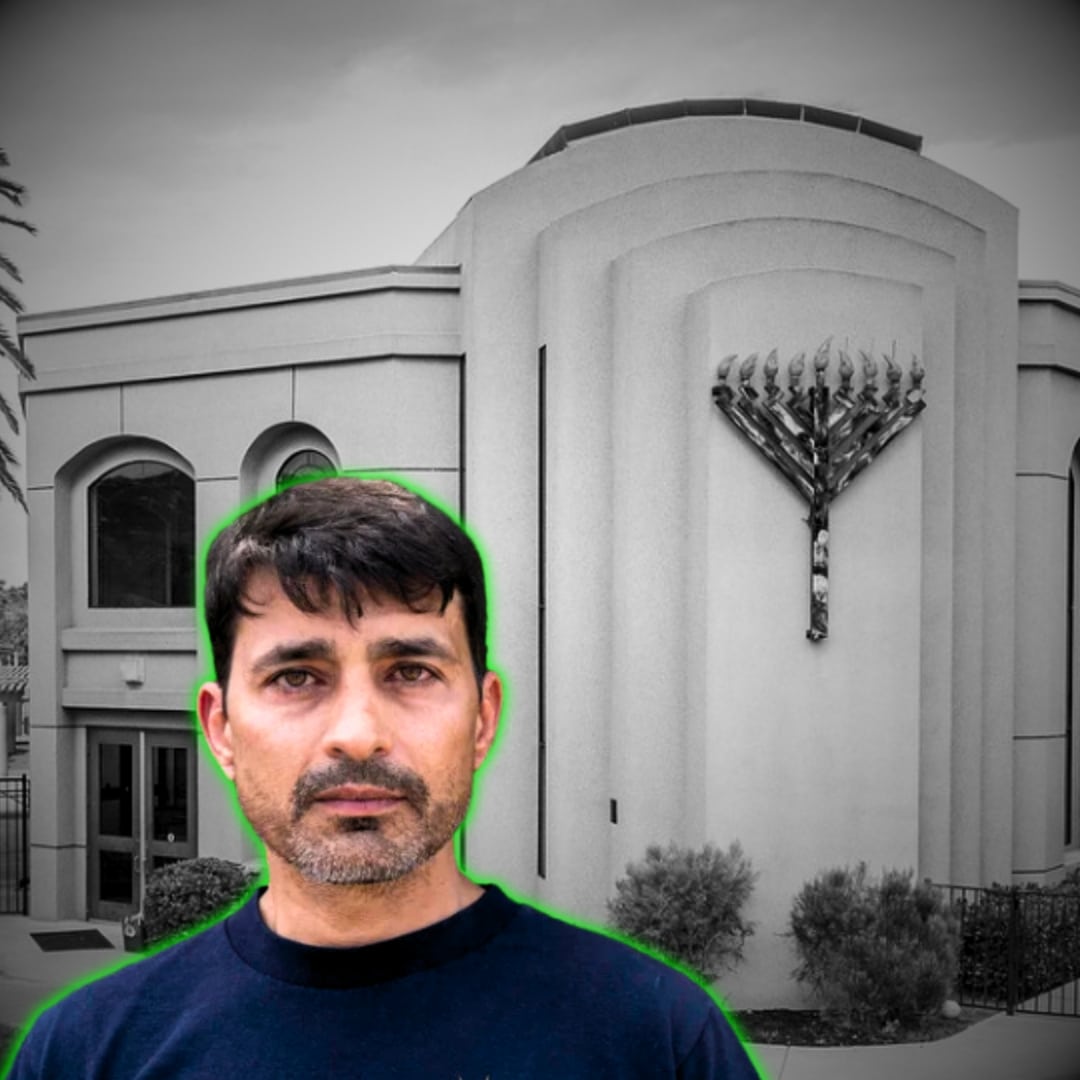
Oscar Stewart, an Army veteran, exemplified the sheepdog mindset in a pivotal moment at the Poway Synagogue shooting.
The incident, which unfolded with the startling crack of gunfire, saw Stewart drawing upon his military training as a bomb disposal technician to confront an armed assailant intent on destruction. His courageous charge toward the gunman not only averted further tragedy but also raised poignant questions about the nature of heroism and the civilian application of military preparedness.
In examining the profile of this 'sheepdog,' one must explore the fabric of his past experiences, the intense seconds of the confrontation, and the reverberating impact of his actions, all of which offer insights into the complex tapestry of split-second decision-making in crisis situations.
Join us as we uncover the layers of Oscar Stewart's story, revealing what compels a man to run towards danger when every instinct might counsel retreat.
During the Torah reading service at Chabad of Poway, a 19-year-old gunman wielding an AR-15-style rifle disrupted the peace, opening fire and injuring four congregants, one of whom succumbed to her injuries.
The tranquility of the Chabad of Poway Synagogue was shattered when the shooter got through its doors, intent on wreaking havoc. Oscar Stewart, a 51-year-old Army veteran, was present and displayed remarkable courage, confronting the gunman in the foyer. His military training and instinctive valor kicked in, leading him to chase the assailant out of the sacred space.
As the chaos unfolded, Rabbi Yisroel Goldstein, despite being wounded, tried to calm the terrified congregants. 'Never thought I'd hear gunfire in a synagogue,' he later recounted. San Diego County Sheriff Bill Gore later confirmed the sequence of events, noting the bravery of those who intervened.
The off-duty Border Patrol agent, who was at the synagogue, joined the pursuit, firing at the gunman's car as he fled. Their collective actions undoubtedly saved lives, a testament to the heroism that can emerge in the face of such senseless violence.
Stewart's presence of mind and readiness to act turned him into a guardian for the Chabad community that day.
Oscar Stewart, a valiant Iraq War veteran, brought his extensive military training to bear when he confronted a gunman at the Chabad of Poway Synagogue, showcasing the instincts and courage honed through his service as both a bomb disposal tech in the Navy and a soldier in the Army. Now 51, Stewart's background in high-pressure situations informed his decisive actions on that harrowing day in San Diego. As a bomb disposal expert, he had developed the keen ability to assess threats rapidly and respond with precision—a skill that undoubtedly contributed to his effective intervention during the synagogue attack.
Despite facing a circumstance that would terrify many, Stewart doesn't regard himself as a hero. Instead, he humbly credits a higher power for his bravery. 'I thank God for giving me the courage to act,' Stewart said, reflecting on the ordeal. His humility extends to acknowledging the emotional toll the event has taken on him, with sleepless nights being a testament to his ongoing struggle.
Since leaving the Army, Stewart has transitioned into civilian life, working in the construction industry. But his commitment to service persists, as he expresses a desire to tackle the root causes of such violence in hopes of preventing future incidents.
In the wake of the synagogue attack, Stewart's heroism was met with a wave of commendation and honors from both the military and civilian communities, reflecting the nation's gratitude for his courageous actions. The incident, which took place at a California synagogue in San Diego County, saw Stewart's rapid response to the unfolding crisis as the shooting began. His decision to confront the gunman was a pivotal act of courage that likely saved many lives.
San Diego County Sheriff Bill Gore publicly recognized Stewart's bravery, commending him for his selfless act. The community echoed this sentiment, with many hailing Stewart not just as a hero, but as a true embodiment of valor in the face of mortal danger. Stewart said he did not consider himself a hero or anything of the sort; rather, he viewed his actions as a duty, spurred by his instincts and military training.
Tragically, the attack resulted in the death of fellow congregant Lori Gilbert-Kaye. Stewart's intervention, however, prevented further loss of life. His bravery serves as a stark reminder of the extraordinary acts of courage ordinary individuals are capable of in times of crisis, leaving an indelible mark on the community he helped protect.
In the wake of the Poway Synagogue shooting, Oscar Stewart's actions underscore the valor inherent in those with military backgrounds when confronted with crises.
The incident not only highlighted Stewart's heroism but also raised awareness of the need for proactive measures in addressing the roots of such violent acts.
Stewart's courage serves as a testament to the potential impact of individuals in critical situations and the importance of preparedness and vigilance in the face of adversity.